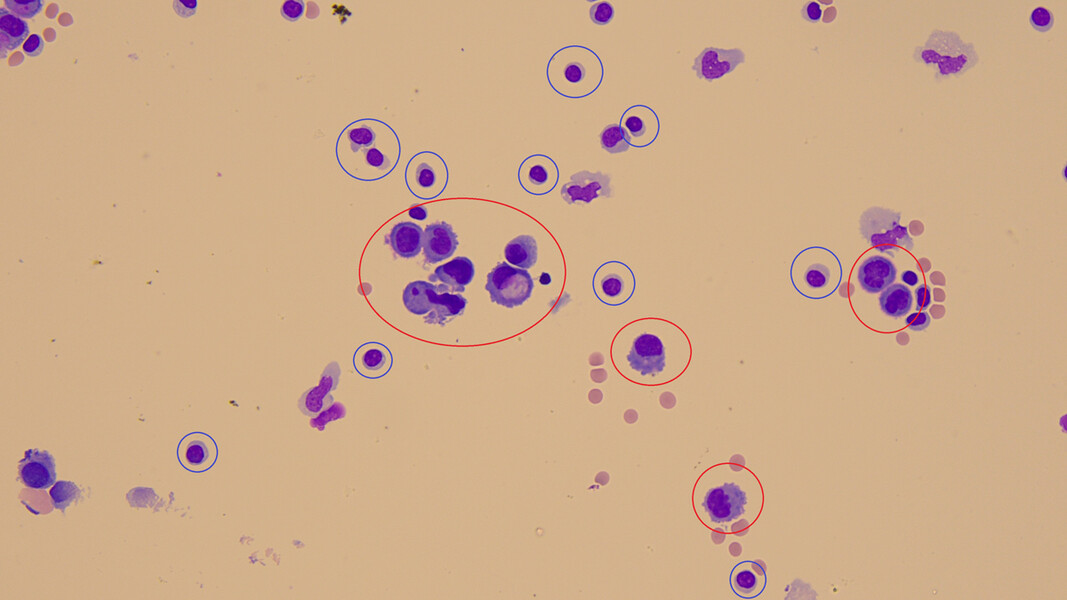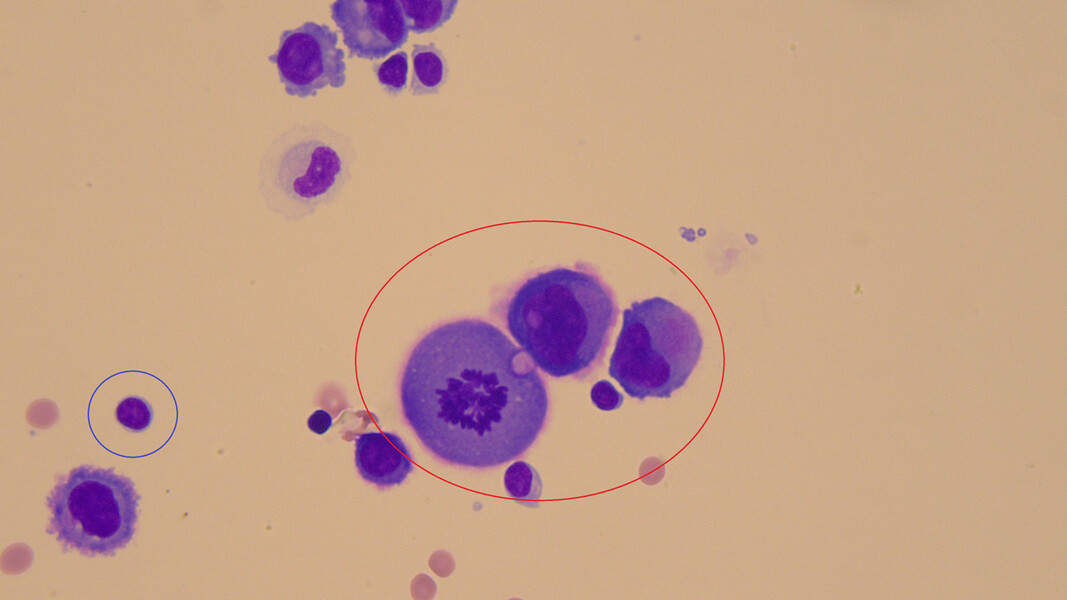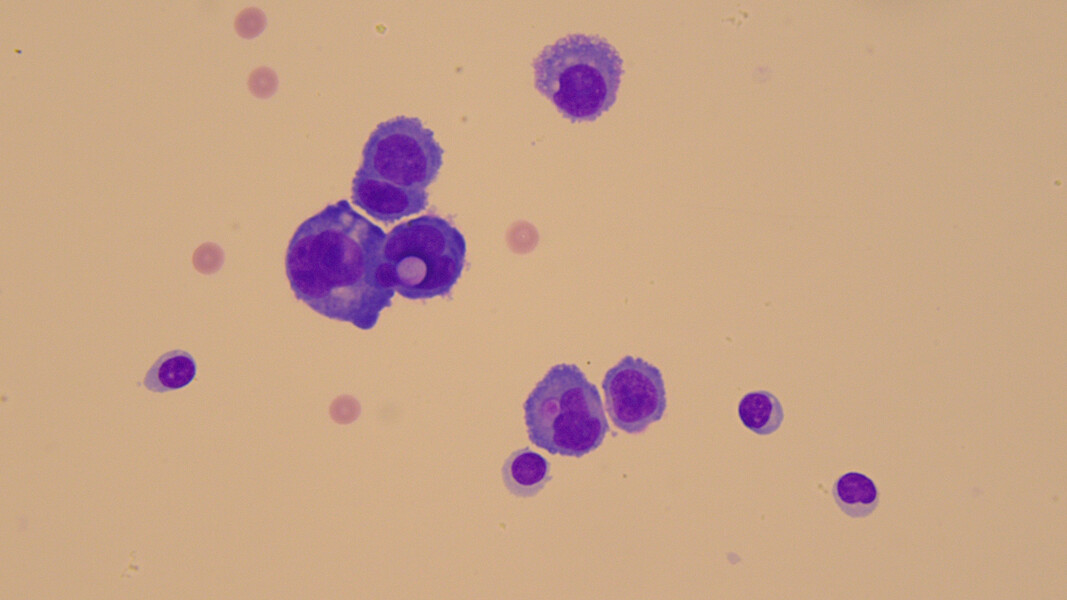Breadcrumbs
Case of the Month: October 2024
Clinical history
A 68-year-old woman presented to the emergency room with a 2 month history of diplopia, headaches, neck and back stiffness, overall weakness, and sensory loss in the hands and feet. On examination, the patient had left hypertropia, areflexia in bilateral lower extremities, and meningeal signs (Kernig) with wide based gait, and inability to tandem or Romberg. A lumbar puncture was performed and cerebrospinal fluid was collected for analysis.
Take a look at the cytology images below and answer the questions.
Questions:
- Describe the abnormal cells in this CSF sample (examples highlighted within the red circles). Use the lymphocytes (examples highlighted within blue circles) a comparison.
- What is your differential diagnosis?
- List 3 critical values in pathology.
How to participate
Take a look at the images.
Anyone is welcome to try to solve the puzzle by commenting on the related post on our Instagram.
If you are a medical student at the University of Toronto, you can also:
If you do, you are in for a chance to win a $100 gift card! (UofT Med students only).

CSF 1 lowest power

CSF 2 with annotations, low power

CSF 3 medium power

CSF 4 high power with annotations

CSF 5 high power
Discover the answer to October's Case of the Month challenge!
The answer to October’s Case of the Month is leptomeningeal carcinomatosis!
Leptomeningeal carcinomatosis is a rare type of metastatic spread where carcinoma cells have metastasized to the leptomeninges (membranes surrounding the brain and spinal cord). This can cause severe neurological symptoms such as neurological deficits and meningeal signs. Breast cancer, lung cancer, melanoma, acute leukemias, and lymphomas are the most common cancers associated with leptomeningeal disease. Leptomeningeal disease is diagnosed via CSF cytology, which can be challenging, though the sample in this case showed typical malignant cytological features such as enlarged size, irregular nuclear contours, open chromatin, nucleoli, cytoplasmic vacuoles, and mitotic figures.
This case was an example of a critical value. Critical values require immediate reporting to the physician who ordered the test. Examples of critical values include unexpected malignant diagnosis, uncommon/unusual infections, and evidence of visceral perforation due to biopsy.
If you are a current medical student at U of T, you can register to join the October case of the month lecture online or in person and have a chance to win a $100 gift card!
You can also join the Special Interest Group in Laboratory Medicine to learn more about Laboratory Medicine.
Laboratory Medicine and the study of disease for medical students

